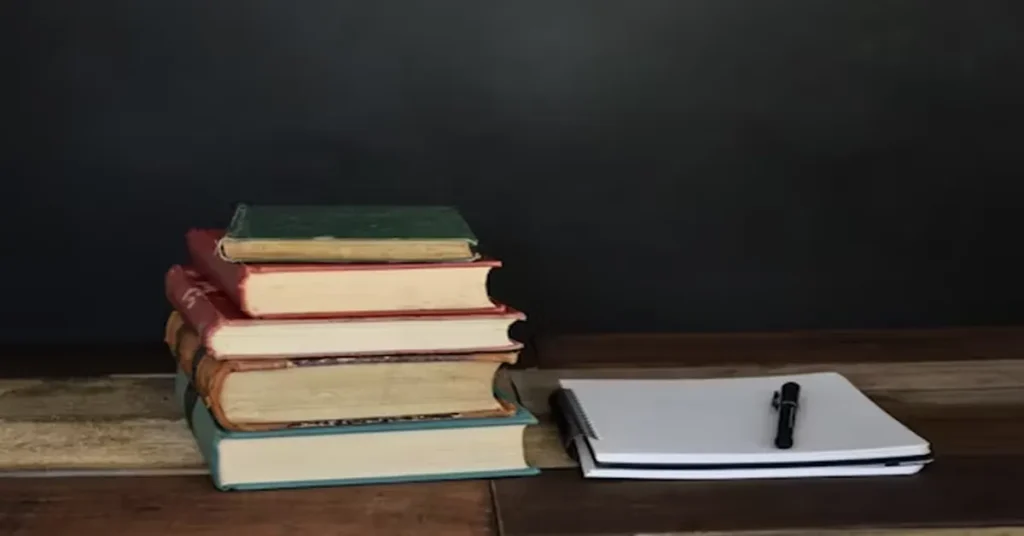The recent lawsuit involving Hingham High School has stirred up significant debate within the community. With the rise of artificial intelligence in education, questions about academic integrity are more pressing than ever. At the center of this controversy is a student’s history project that allegedly relied on AI-generated content, leading to disciplinary action from school officials. Parents have stepped forward, arguing that their child did not cheat and seeking judicial intervention to change his grade.
Voices from students, parents, and educators echo through courtrooms as they grapple with complex issues surrounding technology and ethics in learning environments. This case raises critical questions: How should schools adapt to emerging technologies? What constitutes cheating in an age where information can be generated instantly by machines? Join us as we explore the multifaceted perspectives on this unfolding drama at Hingham High School and its implications for educational practices moving ahead.
Hingham High School’s AI Lawsuit: Voices from Students, Parents, and Educators
Hingham High School’s AI lawsuit has captured the attention of students, parents, and educators alike. The case involves a student accused of using artificial intelligence to complete a history project, leading to disciplinary action that sparked outrage among his family. They believe their son acted within academic norms and are fighting for justice in court.
Parents have expressed concern over how technology is being integrated into education and what defines cheating in this new landscape. Many argue that schools need to adapt their policies rather than punish students who may not fully understand these emerging tools.
Educators also find themselves navigating uncharted waters. Some teachers advocate for clearer guidelines on acceptable use of AI while emphasizing the importance of teaching critical thinking skills alongside technological literacy.
The ongoing trial reflects deep-seated anxieties about balancing innovation with integrity as educational environments evolve rapidly in response to digital advancements.
Read: Breaking Down the Allegations: Bank of America Faces a New Lawsuit from UBS
Parents ask a federal judge to change their son’s history grade. What the judge says
In a notable case stemming from the Hingham High School AI lawsuit, parents recently petitioned a federal judge to alter their son’s history grade. They argued that the punishment for alleged academic dishonesty was excessive and unjust given their son’s intentions. The situation escalated when the student used artificial intelligence tools in his project.
The judge reviewed the circumstances of the case carefully. He acknowledged the parents’ concerns but emphasized that educational integrity must be upheld. His ruling focused on whether there were sufficient grounds to change an established grade based on claims of improper AI use.
He sided with Hingham High School’s decision-making process regarding academic standards. The implications of this ruling could resonate throughout similar cases involving technology in education, setting a precedent for how schools handle allegations of cheating.
This ongoing legal battle underscores broader discussions about ethics in learning environments and how institutions adapt to emerging technologies like AI.
Parents who filed artificial intelligence suit against Hingham Public Schools: Our son didn’t cheat
The lawsuit filed by parents against Hingham Public Schools is stirring significant debate within the community. They argue that their son, a student at Hingham High School, did not engage in cheating when he used artificial intelligence to assist with his history project. The family’s perspective emphasizes that AI should be viewed as a tool rather than an unfair advantage.
They believe the school’s decision to penalize their son disregards how technology plays a role in modern education. Many students today use various digital resources for research and support, leading these parents to question if this situation represents a broader misunderstanding of academic integrity in the age of technology.
Furthermore, they assert that their son’s work showcased originality despite utilizing AI assistance. By bringing this case forward, they aim to challenge existing policies surrounding AI and its application in educational settings.
This legal battle highlights growing concerns over defining cheating versus legitimate use of advanced tools among educators and students alike.
Judge in AI suit against Hingham Public Schools: Student paper has a lot of copying, pasting and bad citations
During the ongoing AI lawsuit against Hingham Public Schools, a judge scrutinized a student’s history paper. The case revolves around accusations of academic dishonesty involving artificial intelligence tools.
The judge pointed out that the paper contained substantial instances of copying and pasting from various sources. This raised concerns about originality and authenticity in students’ work, especially amid rising AI usage.
Moreover, the judge highlighted issues with citations in the student’s submission. Many references were improperly formatted or absent altogether, which further underscored potential negligence in adhering to academic standards.
Such findings could have broad implications for how schools monitor submissions for plagiarism and improper use of technology in education. As educators strive to maintain integrity, this case emphasizes the importance of teaching students proper research techniques amidst technological advancements.
How a Hingham teacher looks at students’ work for use of AI and plagiarism
Teachers at Hingham High School are increasingly vigilant about detecting AI use and plagiarism in student assignments. They employ a variety of strategies to ensure academic integrity. For instance, they analyze writing styles and compare them against known patterns associated with artificial intelligence-generated texts.
Many educators utilize specialized software designed to flag potential plagiarism. This technology effectively identifies similarities between students’ submissions and existing online content or databases, making it easier for teachers to spot unauthorized assistance.
In addition, discussions around the importance of original work have become more prominent within classrooms. Teachers encourage students to engage in the creative process while emphasizing the value of their unique perspectives.
Regular feedback sessions also help teachers understand how each student articulates ideas over time. By observing these developments, educators can better discern when a student’s submission diverges from their usual style or understanding—potentially signaling reliance on AI tools.
Judge says Hingham High School acted reasonably in AI case, but final verdict still pending
In a recent ruling, the judge acknowledged that Hingham High School acted reasonably in handling the AI cheating allegations against a student. This decision comes amid growing concerns about academic integrity and the use of artificial intelligence tools by students.
The court recognized that educators are facing unprecedented challenges as technology evolves rapidly. As schools adapt to these changes, they must establish policies that effectively address new forms of potential misconduct.
Despite this recognition of reasonableness, it’s important to note that the final verdict in this case is still pending. The judicial process will determine whether or not specific actions taken by the school were justified within the context of established educational standards.
Both sides have presented compelling arguments regarding what constitutes fair disciplinary measures when faced with AI-related issues. The outcome could set significant precedents for how similar cases are managed in other districts across the country.
Hingham High School student testifies in federal court in AI lawsuit against district
A Hingham High School student took the stand recently in a federal court hearing related to the ongoing AI lawsuit against the district. This case has garnered significant attention, stirring various opinions among students, parents, and educators alike. The student’s testimony aimed to shed light on their experience with using artificial intelligence for school assignments.
During the proceedings, the student described how they utilized AI tools as part of their research process while working on a history project. They expressed feeling misunderstood by both peers and faculty regarding their intentions and efforts. Many believe that this incident highlights broader concerns about technology’s role in education.
The courtroom was filled with moments of tension as attorneys debated over definitions of academic integrity. Some attendees noted that this lawsuit could set important precedents around technology use in schools moving forward.
This student’s voice adds an essential layer to discussions surrounding ethics and learning methods in modern classrooms today. Their personal insights may influence how similar cases are viewed in future legal contexts.
Judge denies motion for preliminary injunction in AI case involving Hingham student; attorney says case will continue
A significant development occurred in the Hingham High School AI lawsuit when a federal judge denied a motion for preliminary injunction. This request, made by the student’s family, sought to reverse disciplinary actions taken against their son for using artificial intelligence in an academic project.
The attorney representing the family expressed disappointment but remained resolute. They emphasized that this ruling does not end the fight; instead, it sets the stage for continued legal proceedings. The case will move forward as both sides prepare for additional hearings and potential arguments.
Throughout these proceedings, questions surrounding academic integrity and technology’s role in education have gained prominence. Schools across the nation are watching closely how this case unfolds.
As discussions on AI use grow louder among educators and parents alike, it’s essential to consider its implications on teaching standards and student behavior moving forward in similar situations.
Judge Rebuffs Family’s Bid to Change Grade in AI Cheating Case
A federal judge recently dismissed a family’s request to alter their son’s history grade amid an ongoing controversy surrounding AI use in academics. The teenager faced disciplinary action for allegedly using artificial intelligence tools to complete his assignment, which led to claims of academic dishonesty.
The parents argued that the punishment was unjust and sought judicial intervention to rectify their son’s grade. They believed the school overstepped its boundaries by penalizing him without adequate evidence of cheating. Despite their pleas, the judge found no grounds to interfere with the school’s decision.
This ruling highlights the complexities schools face as they navigate modern technology’s impact on education. It also raises pressing questions regarding fairness and transparency in grading practices when students utilize AI resources.
As this case continues, it sheds light on broader implications for educational institutions grappling with similar issues related to academic integrity and technological advancements in learning environments.
Read: Maximize Your Efficiency: Navigate the ServiceTitan Login Portal
Parents Sue After School Disciplined Student for AI Use: Takeaways for Educators
The recent lawsuit involving Hingham High School highlights significant concerns for educators regarding the use of artificial intelligence in academic assignments. Parents argue that their child was unfairly punished for utilizing AI tools, raising questions about ethical guidelines and educational integrity.
As technology evolves, so do the definitions of cheating and plagiarism. Educators must adapt to these changes by clearly outlining acceptable uses of AI within coursework. It’s essential to differentiate between leveraging technology as a study aid versus outright copying.
Transparency is critical. Schools should communicate clear policies surrounding AI usage in assignments, ensuring students understand boundaries while still encouraging innovative learning methods.
This case serves as a reminder for educators to engage with students about responsible technology use. Open discussions can help establish trust and create a more informed student body on how to best navigate modern educational resources without crossing ethical lines.
Update: Hearing held on AI-related lawsuit filed by Hingham parents
Recently, a hearing took place regarding the AI-related lawsuit filed by parents of a Hingham High School student. This case has drawn considerable attention across educational circles, primarily due to its implications for how schools handle artificial intelligence in assignments.
During the hearing, various testimonies were presented that highlighted differing perspectives from students, educators, and legal experts. Parents argued their child was unfairly punished for using AI tools that are becoming increasingly common among students. They stressed the need for clearer guidelines on technology use in academic settings.
On the other hand, school officials maintained that integrity and proper citation practices must be upheld. The district emphasized their responsibility to ensure fair evaluation standards while adapting to new technologies.
As the legal proceedings continue, many within the community watch closely. The outcome could set important precedents not just for Hingham High School but also for educational institutions grappling with similar challenges nationwide.
Hingham High senior suing school officials over punishment for using AI in history project suffers legal setback
A Hingham High School senior is facing a significant legal setback in his lawsuit against school officials. The student, who was punished for using AI to complete a history project, sought to challenge the disciplinary action through the courts. His argument centers on claims of unfair treatment and inadequate guidelines regarding AI usage in academic settings.
Despite initial hopes for a favorable ruling, recent developments have complicated his case. The presiding judge highlighted issues with the evidence presented by the student’s family. Concerns were raised about whether proper procedures had been followed during the school’s investigation into the alleged misuse of artificial intelligence.
Parents express frustration over what they perceive as an evolving landscape of technology in education that schools are not adequately preparing students to navigate. They argue that clearer policies on AI use could prevent similar situations from arising in the future.
As this case unfolds, its implications extend beyond one student’s experience and raise broader questions about ethics and technology within educational institutions.
Conclusion
The ongoing situation at Hingham High School reflects larger trends in education. The intersection of artificial intelligence and academic integrity is becoming increasingly complex. As technology evolves, so do the expectations placed on students.
Students are navigating a landscape that includes both traditional learning methods and new technological tools. This case highlights the necessity for clear guidelines regarding AI usage in schoolwork. Parents, educators, and students alike must engage in this conversation to find common ground.
Hingham High’s legal battle serves as a cautionary tale for other districts grappling with similar issues. Schools need to adapt their policies to address AI’s role while maintaining academic standards.
As this lawsuit unfolds, its implications will resonate far beyond Hingham. Stakeholders across the educational spectrum should pay close attention to how it shapes future discussions around ethics and technology in schools.
FAQs
As the case surrounding the Hingham High School AI lawsuit continues to unfold, several key questions arise. Here are five frequently asked questions that provide clarity on this complex situation:
1. What sparked the AI lawsuit against Hingham High School?
The lawsuit began when parents contested disciplinary actions taken against their son for allegedly using artificial intelligence to complete a history project.
2. How has the court responded to this case?
A federal judge reviewed multiple facets of the case, including claims regarding plagiarism and proper citation methods in student work. While some requests from parents have been denied, there’s still an ongoing examination of how AI is viewed in academic settings.
3. What did students say during testimonies?
Students provided insights into their experiences with technology and its impact on learning. Many expressed concerns about fairness and transparency in grading policies related to AI use.
4. Are there broader implications for educators stemming from this lawsuit?
Yes, educators nationwide may need to reevaluate their policies surrounding technology usage in academic work as more cases like this emerge, highlighting challenges regarding integrity and originality.
5. What’s next for Hingham High School’s administration?
As legal proceedings continue, school officials will likely assess existing policies on academic dishonesty while considering how best to integrate technological advancements within educational frameworks responsibly.
The developments around Hingham High School’s AI lawsuit not only affect those directly involved but also set precedents that could reshape educational practices moving forward.







